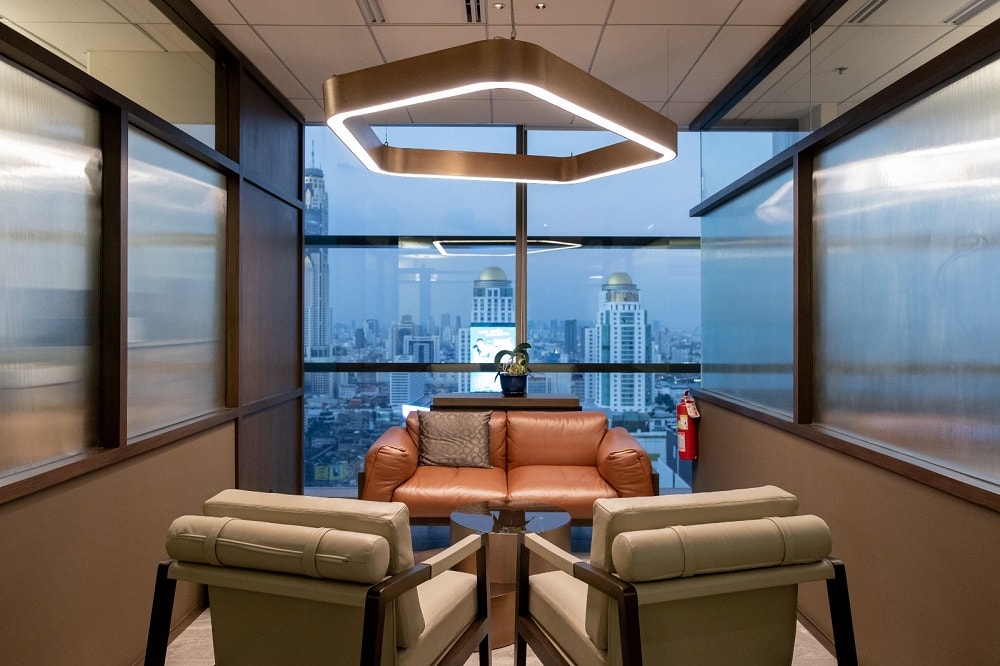Work-from-home might be the order of the day, but it is far from over for workspaces.
Confession: we love working from home too. We can wake up to a session of morning yoga or even an F45 set, sit down to a proper breakfast with our family, change into comfortable house clothes, and commence work. And it is only 8.30am.
Here’s the thing though: while work commute might be a bane, offices are a boon. Not even taking into account the professional resources (or air-conditioning, for that matter) offered, offices offer a whole lot more than we realise.
A ritual to wake the work-warrior
Precious time is indeed saved when we can be at work just by flipping open our laptops – but are you really working as efficiently and effectively as you normally are? We all play so many roles in our lives outside of work that it is sometimes hard to snap into work mode fully. Like how Clark Kent needs to go into a telephone booth to transform into Superman, the routine of putting together a spiffy outfit, organising our work kit, or even making our way to the office, is something that helps many to focus our thoughts and switch into work-warrior mode. Furthermore, the familiarity of this process is a rock for those seeking a sense of stability in times of uncertainty.

An environment optimised for productivity
As we always say at The Great Room – it’s all work, it’s all play. We love that working from home is getting more people to understand that achieving work-life balance isn’t about choosing between one or the other, but having and managing both in harmony. However, not all homes are made equal (and offices, for that matter); and when you need to hunker down for an intensive session, being in an environment purpose-built for productivity makes all the difference. From lighting, acoustics to aesthetics, a thoughtfully-designed workspace sets the stage for you to give your best performance. Situated in prime locations, our premium co-working destinations in Singapore, Hong Kong and Bangkok also offer superb accessibility – so you and your team can shorten your work commute and maximise the precious hours in a day.
Culture club
In the words of The New York Times columnist Jennifer Senior, the office is “a physical manifestation of a corporate ethos”. But it’s called “work culture” for a reason: and beyond being a business, a company is really a collective of people who share the same ethics, purpose, world view – and sometimes the same taste in other things in life, even. Within this space, we don’t just work together – we also learn from and influence each other.

The Great Room founder Jaelle Ang proposes that offices and co-working spaces will become the modern agora. “When things are changing faster than we can figure it all out, then learning and application must be the most valuable skills to have. In the offices of today, especially in the best of co-working spaces, you see a plethora of painstakingly curated events covering learning, motivation and well-being. We can certainly conduct these sessions virtually, but when everyone has spent the day on Zoom calls, it is inevitable that we will be less receptive to doing another learning or social session facing the screen. Sharing a laugh with a roomful of like-minded attendees, with a drink in hand, is a much more appealing proposition.”
Social studies
Yet more important than anything else, perhaps, is the social aspect of going into an office. You might not think much of casual banter with your colleagues, but a casual collision and a serendipitous chat can often bring about an exponential burst of ideas. “Offices house relationships with trust and rapport; and valuable communities with friction of ideas and are designed for spontaneous engagement, deep collaboration and productivity,” says Jaelle. “Companies and teams will still see the need for physical space to collaborate, benefit from technology, see colleagues and clients, and build routine and culture in a local environment.”
The need for in-person interaction goes beyond our natural instinct as social creatures: “The social capital accumulated prior is the reason why we have been able to cope with working from home with some resemblance of productivity,” says Jaelle. “We can draw from this reserve for problem-solving, ideation, or peer inspiration perhaps for a couple of months. However, we will need to top up this capital soon – through face-to-face interaction, in a physical space .”
